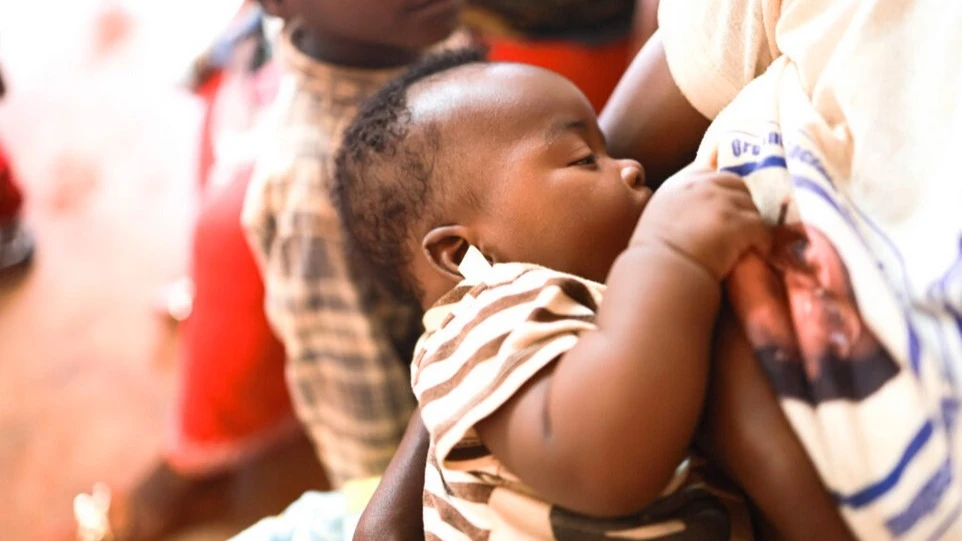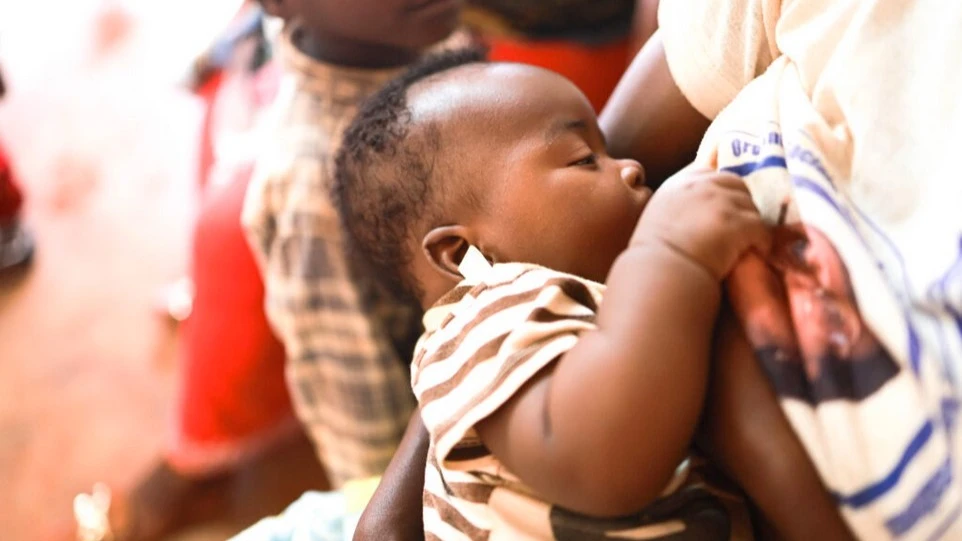Six-month exclusive breastfeeding recommended for optimal growth

SOME newly married persons may be unfamiliar with the proper way of feeding their children when they get a child for the first time in their lives. If you are one of them, don’t feel bad about it, but be open to learning.
The other day, a cousin, his wife, and two of their children came to see us at home. As we were talking, his wife narrated a story of a woman who gave birth to a baby girl not more than three months ago. Since I knew the woman, I was attentive to the wife of my cousin’s narration.
I was attentive because it reminded me of what my wife went through after she gave birth to the first-born baby boy. She too believed she was unable to breastfeed the child due to what we thought at the time was “insufficient breast milk” until she was advised by a nurse what to do. After the nurse’s advice she started breastfeeding the child and after six months she would breastfeed and give to the child other suitable foodstuffs.
The woman and her husband married to each other informally many years ago, but regularised their marriage a year ago. Since for many years they had no child, they had heard of many unconfirmed stories related to delays in child birth. In the community they come from early child bearing, or marriage is common. In this way, not knowing what to do in relation to breastfeeding is likely.
After many years of waiting, the couple sighed with relief after it was medically proved that the wife was pregnant and after nine months, she gave birth to a baby girl. What a joyful moment! Surprisingly, since her birth the child has been feeding on porridge and seems to develop signs of stunted growth.
A manual titled “Mainland Tanzania Food-Based Dietary Guidelines for a Healthy Population: Technical Recommendations” developed and published in 2023 by the Ministry of Health through Tanzania Food and Nutrition Centre (TFNC) with financial and technical support from FAO recommends exclusive breastfeeding for at least the first six months of a child’s life. “Infants from birth to six months get their entire nutrient and water requirements from the mother’s breast milk, so they do not need additional liquid or food.”
It suggests that exclusive breastfeeding has longer-term health benefits, as it reduces the risk of becoming overweight or obese and developing noncommunicable diseases (NCDs) later in life. “Breast milk provides all the nutrients and fluids that the baby needs for growth and development in the first six months. It also has special components like growth factors, enzymes, hormones and anti-infective factors.”
The manual says evidence indicates that the long-term intake of a low-quality diet contributes significantly to most forms of malnutrition, including stunting, micronutrient deficiencies and overweight and obesity. Breast milk contains protein, fat and calcium, which are more easily digested by the baby than those from animal milk. Furthermore, it says iron content in cow milk (let alone in porridge) is insufficient for nourishing the baby.
An open educational resource (OER) says stunting affects millions of children globally, with 149.2 million under the age of five affected in 2020, and its prevalence is declining globally except for Africa. The OER says children from socioeconomically disadvantaged backgrounds are disproportionately affected.
But how many women or mothers know this? The manual has it that breastfeeding should start as early as within one hour after delivery, and it is important for babies to be given ‘first milk’ (colostrum) within the first hour of birth.
“Colostrum is rich in protective antibodies and white blood cells that help the baby’s immune system fight harmful microorganisms. It is important that infants receive colostrum and no other foodstuffs because it helps protect them against infections and illness,” the manual says.
Some women or mothers think colostrum is dirty milk and unfit for child consumption, so instead of giving it to their children they press their breast to ooze it out before they breastfeed their baby.
The manual says, breastfeeding promotes proper jaw, teeth and speech development – the action of breastfeeding helps the child’s jaw to develop as well as muscles such as the tongue. “This assists with clear speech, protects against dental caries and reduces the risk of orthodontic problems.”
It helps mothers reduce the risk of ovarian cancer, breast cancer, and type 2 diabetes mellitus, is associated with lower cardiovascular disease risk, including high blood pressure and high cholesterol and delays a new pregnancy and helps the uterus to return to its previous size, which in turn helps to reduce bleeding and may help to prevent anaemia. Thus, mothers are advised not to give their children any water, tea, honey, sugar water, salt, juice or any other foodstuffs before six months after birth to reduce the risk of diarrhoea, infections or death.
Top Headlines
© 2025 IPPMEDIA.COM. ALL RIGHTS RESERVED

























